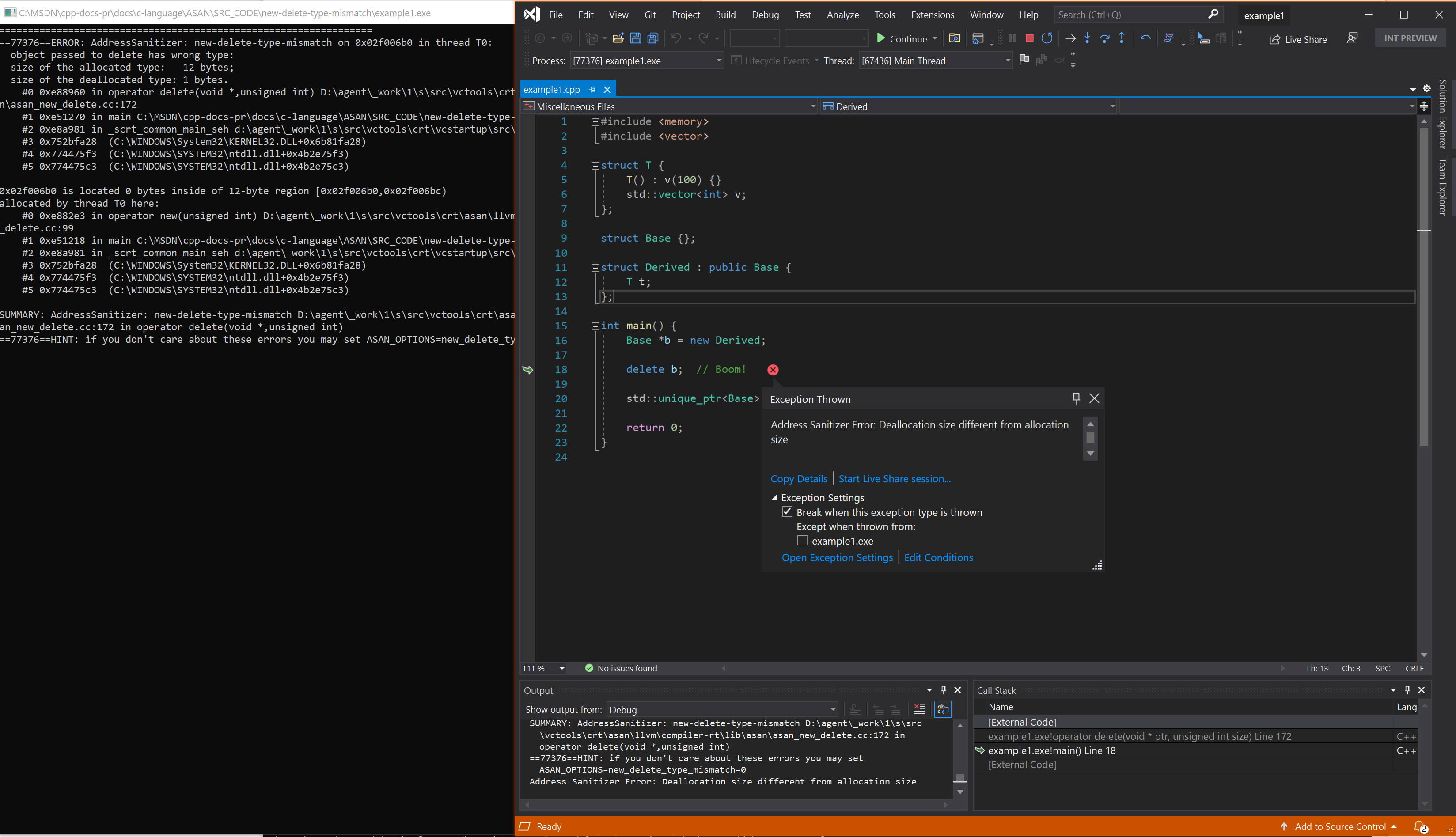Error: new-delete-type-mismatch
Address Sanitizer Error: Deallocation size different from allocation size
In this example, only ~Base, and not ~Derived, is called. The compiler generates a call to ~Base() because the Base destructor isn't virtual. When we call delete b, the object's destructor is bound to the default definition. The code deletes an empty base class (or 1 byte on Windows). A missing virtual keyword on the destructor declaration is a common C++ error when using inheritance.
Example - virtual destructor
// example1.cpp
// new-delete-type-mismatch error
#include <memory>
#include <vector>
struct T {
T() : v(100) {}
std::vector<int> v;
};
struct Base {};
struct Derived : public Base {
T t;
};
int main() {
Base *b = new Derived;
delete b; // Boom!
std::unique_ptr<Base> b1 = std::make_unique<Derived>();
return 0;
}
Polymorphic base classes should declare virtual destructors. If a class has any virtual functions, it should have a virtual destructor.
To fix the example, add:
struct Base {
virtual ~Base() = default;
}
To build and test this example, run these commands in a Visual Studio 2019 version 16.9 or later developer command prompt:
cl example1.cpp /fsanitize=address /Zi
devenv /debugexe example1.exe
Resulting error

See also
AddressSanitizer overview
AddressSanitizer known issues
AddressSanitizer build and language reference
AddressSanitizer runtime reference
AddressSanitizer shadow bytes
AddressSanitizer cloud or distributed testing
AddressSanitizer debugger integration
AddressSanitizer error examples